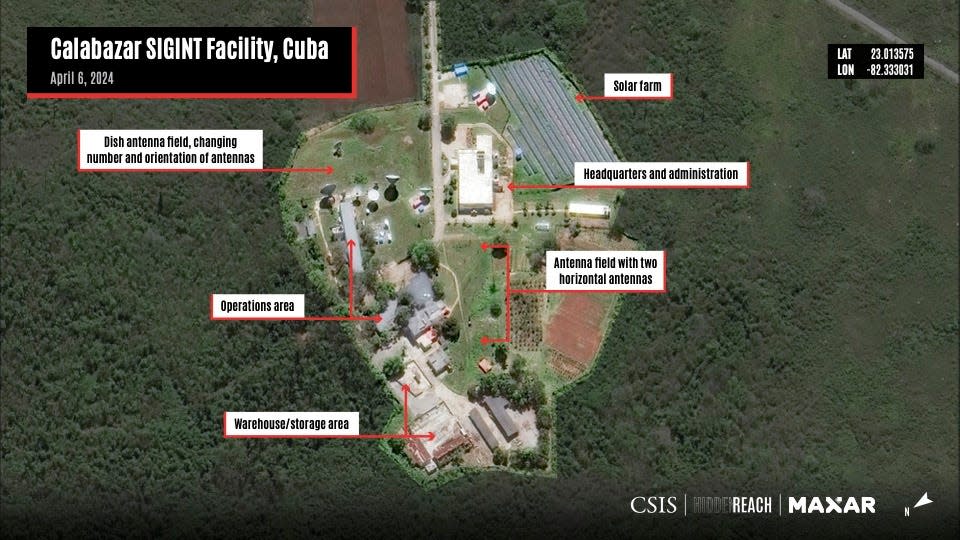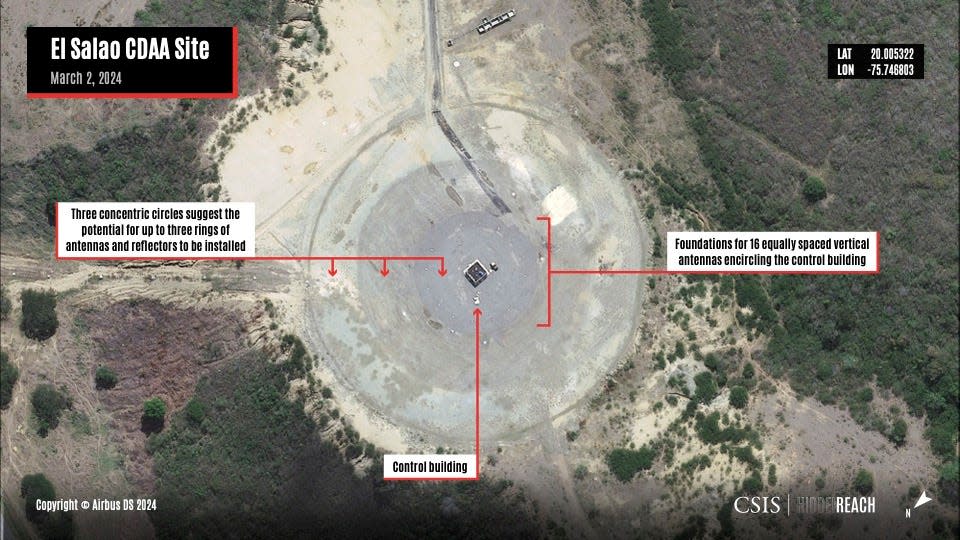Suspected Chinese spy bases in Cuba are growing, including one near a US naval base: report
Suspected spy bases linked to China are expanding in Cuba, per a US think tank.
The Center for Strategic and International Studies found a new potential site near a US naval base.
Cuba's proximity to the US gives China an intelligence window that is unreachable from its own land.
Potential spy bases believed to be linked to China have been found in Cuba, with one near the Guantánamo Bay US naval base, according to a report by the Washington DC-based Center for Strategic and International Studies.
CSIS analysts looked at satellite imagery and open-source information and identified four "active" sites in Cuba that they say are capable of conducting electronic surveillance operations.
One of them is a previously undisclosed building located about 70 miles from the US naval facility in Guantánamo Bay, the report said.
"These four sites are among the most likely locations supporting China's efforts to spy on the United States," it said.
Last year, multiple news outlets — citing officials with knowledge of sensitive intelligence — reported that China wanted to set up a spy base in Cuba.
Two unnamed US officials told Politico at the time that Beijing and Havana were negotiating to build a station about 100 miles off the coast of Florida, possibly to gather signal information on military sites there.
Unnamed US officials also told The Wall Street Journal last year that China and Cuba had agreed in principle to a multibillion-dollar project for the development of the base.
CNN and The New York Times also reported on the agreement and planned facilities.
At the time, the Department of Defense and the White House pushed back on the reports.
An unnamed US official also told the Associated Press last year that China had been operating in Cuba since at least 2019.
China's spy bases in Cuba
CSIS analysts say they have located four bases on the island of Cuba: in Bejucal, El Salao, Wajay, and Calabazar.
The CSIS provided satellite imagery of each site from March and April 2024, showing how they had undergone upgrades over the past decade.
Bejucal, located south of Havana and identified by CSIS as the largest active Cuban facility, has seen the building of a "mysterious" new radome that CSIS believes may include a radar or ELINT device.

Meanwhile, in Wajay, a compound has "gradually" expanded over the past two decades, from just one antenna and several small buildings in 2002 to 12 antennas of various sizes and orientations, significant operations and support facilities, and even a small solar farm, it said.
Calabazar, a small Cuban military complex, now has two visible pole antenna arrays and more than a dozen dish antennas of various sizes dispersed across a gated area, images suggest.

The antennas' number, position, and direction have shifted significantly, likely in response to changes in the site's mission, the report said.
CSIS analysts also uncovered a new, previously unreported installation in El Salao, south of Cuba, near Naval Station Guantánamo Bay, a vital US military base in the region.

"These are active locations with an evolving mission set," Matthew Funaiole, a senior fellow at the China Power Project at CSIS and the report's chief author, told The Wall Street Journal.
A strategic location for spycraft
Some of the systems supposedly set up in Cuba, notably antennas, can gather intelligence by intercepting signals — a practice known in the defense community as signals intelligence, or SIGINT.
These systems' capacities and functions are determined by their size, quantity, orientation, and arrangement, per the CSIS report.
Cuba's proximity to the US provides China with a "significant" intelligence window that is inaccessible from Chinese territory, the CSIS report said.
The White House and the Pentagon didn't immediately respond to a request for comment. Cuba's Ministry of Foreign Affairs declined to provide a statement.
Read the original article on Business Insider

